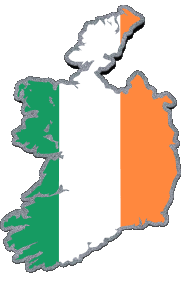 Project: Our Linguistic Immersion in Ireland
Project: Our Linguistic Immersion in Ireland 
OBJECTIVES: You will prepare and deliver a presentation to
-
Share your real experience in Ireland
-
Explain how the immersion helped your English skills
-
Show the cultural and personal benefits
-
Motivate them to participate in the program in the future
You are not selling the trip: you are telling the truth about your experience.(peer-to-peer motivation)
Format of the Presentation
Type: Oral presentation + visual support
-
Language: English (adapted to 3º ESO level)
-
Duration: 8–10 minutes
-
Group: Individual or pairs (teacher decides)
-
Visual support (mandatory):
-
PowerPoint / Google Slides / Canva
Photos, short videos, icons, keywords (not long texts)
-
Structure (What You MUST Include)
1.Introduction (1 minute)
-
Who you are
-
When you went to Ireland
-
How long you stayed
-
Why you decided to participate
Example: “We went to Ireland for 5 days as part of the English immersion program. At first, we were nervous but excited.”
2. Daily Life in Ireland (2 minutes)
Explain clearly:
-
Where you stayed (host family)
-
A typical weekday:
-
Classes
-
Activities
-
Meals
-
-
How communication worked in English
Be honest: Was it difficult at the beginning?
3. English Learning Experience (2 minutes)
Talk about:
-
Improvements in:
-
Speaking
-
Listening
-
Pronunciation
-
-
Situations where you had to use English
-
Differences between learning English in Spain and in Ireland
Tip: Give real examples, not general ideas.
4 Cultural & Personal Experience (2 minutes)
Mention:
-
Irish culture (food, traditions, people)
-
Activities or excursions
-
New friends (Irish or international students)
-
What you learned about yourself:
-
Independence
-
Confidence
Responsibility
-
5 Challenges & Funny Moments (1–2 minutes)
This part is VERY important for motivation.
-
Difficult moments (language, food, homesickness)
-
Funny misunderstandings or anecdotes, such as:
🛁 Example 1: Soup vs. Soap
“One day I told my host family: ‘Can I have a soup?’
They started talking about food, but I really wanted to take a shower.sopa: soup soap: jabón
🤒 Example 2: Constipated vs. Cold
“I told my host family ‘I am constipated’ but it is a false friend: ‘constipado’ does NOT means having a cold.
In English, constipated means you have a very different problem…🧃 Example 3: Other Common Mistakes (You can mention briefly)
“I have 15 years” instead of “I am 15 years old”
-
How you solved problems
3º ESO students want to know the real experience, not a perfect one.
6 Final Message to 3º ESO Students (1 minute)
Answer directly:
-
Would you recommend the experience? Why?
-
What advice would you give them?
-
What should they not be afraid of?
Example: “If you are thinking about going, don’t be scared. At the beginning it’s hard, but it’s one of the best experiences you can have.”
Visual Presentation Rules
✅ Use images, not long paragraphs
✅ Maximum 3 lines per slide
❌ Do NOT read directly from the slides
✅ Slides support your speech, they don’t replace it
🗣️ Oral Presentation Tips
-
Speak slowly and clearly
-
Use simple vocabulary
-
Look at the audience, not the screen
-
Smile and sound natural
It’s okay to make small mistakes : communication is the goal
Assessment Criteria
Your presentation will be evaluated on:
-
Content and organization
-
Clarity of explanation
-
Use of English
-
Visual support quality
Ability to motivate younger students
⭐ REMEMBER:
You are role models for 3º ESO. Your experience can help them lose fear, gain motivation, and believe in themselves.
If you have any doubt, just tell me 😊



